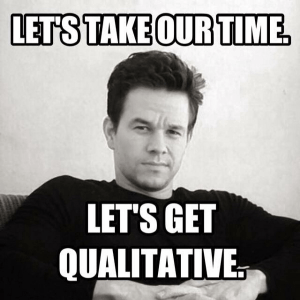Understanding Engineering Advice in Policy Practice
By laurent.liote.19, on 20 August 2020
Laurent Liote is a first year PhD student at UCL STEaPP. He is also a member of the 21st Century Decision Making research unit. Follow him on LinkedIn (Laurent Liote) and twitter (@LaurentLiote).
“So, what’s your PhD on again?”
What is the worst question you can ask a PhD student? You guessed it, the classic “so what’s your topic then?”. I generally mumble academic buzzwords for three minutes before looking at my confused interlocutor and concluding: “Huh, basically political science”. So, this post is my attempt at clearly explaining what my research is about, and by extension what the next three years of my life will look like.
My research interest was sparked by something I read in the 2018 National Infrastructure Commission report (yes, I read those for fun): “policy design [is to be] embedded into the engineering-driven culture of infrastructure planning”. This raises several questions, what is an engineering-driven culture and what does that mean for engineering expertise in the policy process? More digging revealed that very little research had been done on engineering advice for policy; no one had systematically looked at why interactions between engineering experts and other policy officials happen the way they do and what that means for the policy process.
“But that’s too broad a topic, no?”
Even if I have three years ahead of me, researching “engineering advice” is way too broad, so the last few months have been spent on Microsoft Teams chatting to engineers, policy makers and academics to narrow my topic down. It became clear that computer modelling is centre stage for policy making, engineers working in/for the civil service were increasingly asked to model different variables and outcomes to inform infrastructure policy. A few of my contacts noted that this was especially relevant when it came to informing energy infrastructure policy to meet the UK’s 2050 “greenhouse gas net zero” objective. Understanding how engineering and related modelling insights are deployed to inform renewable energy production therefore seem topical and a good place to start.
“Ok, so what’s the plan then?”
One word: ethnography! As an anthropologist by training I get overly excited when I get to use that term (my PhD cohort can confirm). Ethnographic research aims to describe how people perceive their world and how they act in it to explain the complexity of organisational life. Lucky for me, STEaPP has a strong policy network which will enable me to carry out qualitative research in three teams where engineers and policy makers interact in the following institutions (official authorisations pending*) :
- The UK government’s department for Business, Energy and Industrial Strategy (BEIS)
- The National Infrastructure Commission (NIC)
- The Royal Academy of Engineering (RAEng)
All three teams are working on renewable energy policy.
*Please note that the involvement of the three institution listed above is not finalised and is pending on ongoing talks with stakeholders as well as ethical/research approval from these organisations and UCL.

Source: Twitter @ResearchMark
Over the next year I plan on observing/participating in how the teams work, communicate internally/externally and draft policy memos. This will of course include interviews and focus groups to uncover how engineers and policy makers collaborate, generate and use insights from computer models. I aim to uncover how different organisations use different models and how engineering advice travels from one institution to another – for instance from planning at NIC to implementation at BEIS. This project will also highlight how engineering advice and expertise is used to meet the 2050 “greenhouse gas net zero” objective.
“And what is it you hope to achieve?”
Having said all this I hope that, by the end of my PhD, I will have done three things:
- Contributed to a body of academic and policy literature on advice giving and receiving by focusing on the often-neglected engineering advice.
- Shed some light on the growing debate around the use of technology generated evidence in policymaking. Trendy topic, I know!
- Identified best practices leading to effective infrastructure policy making. This will help understand where engineers should sit in the policy structure and how engineering, IT and policy skills should be combined to best deliver.
Alright, now I’m going to learn this off by heart for the next time someone asks me: “So, what’s your PhD on again?”.
 Close
Close

